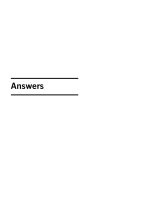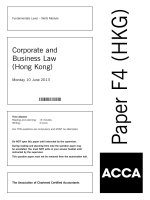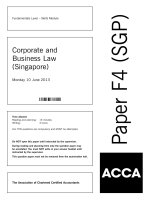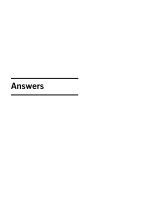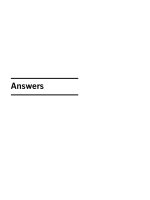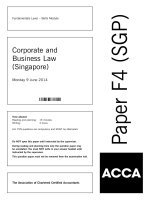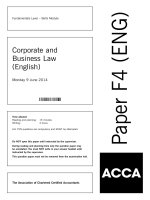ACCA f4 corporate and business law english 2014 jun q
Bạn đang xem bản rút gọn của tài liệu. Xem và tải ngay bản đầy đủ của tài liệu tại đây (79.44 KB, 4 trang )
Corporate and
Business Law
(English)
Monday 9 June 2014
Time allowed
Reading and planning:
Writing:
15 minutes
3 hours
ALL TEN questions are compulsory and MUST be attempted.
Do NOT open this paper until instructed by the supervisor.
During reading and planning time only the question paper may
be annotated. You must NOT write in your answer booklet until
instructed by the supervisor.
This question paper must not be removed from the examination hall.
The Association of Chartered Certified Accountants
Paper F4 (ENG)
Fundamentals Level – Skills Module
ALL TEN questions are compulsory and MUST be attempted
1
(a) In relation to the English legal system, explain the meaning of:
(i)
criminal law;
(3 marks)
(ii) civil law.
(3 marks)
(b) Explain the hierarchy of courts dealing with criminal law.
(4 marks)
(10 marks)
2
In relation to the law of contract, explain the rules relating to:
(a) acceptance of an offer;
(6 marks)
(b) revocation of an offer.
(4 marks)
(10 marks)
3
In relation to the TORT OF NEGLIGENCE, explain:
(a) the standard of care owed by one person to another;
(6 marks)
(b) remoteness of damage.
(4 marks)
(10 marks)
4
In the context of payment for shares issued by a company, explain the meaning and legal effect of the following:
(a) capital maintenance;
(2 marks)
(b) issuing shares at a premium;
(4 marks)
(c) issuing shares at a discount.
(4 marks)
(10 marks)
5
In the context of partnership law, focusing particularly on the liability of the members, explain each of the
following:
(a) an ordinary partnership;
(2 marks)
(b) a limited partnership;
(3 marks)
(c) a limited liability partnership.
(5 marks)
(10 marks)
2
6
In relation to company law:
(a) explain the meaning of, and procedures involved in, voluntary liquidation; and
(6 marks)
(b) explain and distinguish between:
(i)
a members’ voluntary liquidation;
(2 marks)
(ii) a creditors’ voluntary liquidation.
(2 marks)
(10 marks)
7
In relation to employment law, explain the meaning of redundancy and the rules which govern it.
(10 marks)
8
Apt Ltd is a small independent book company, which specialises in publishing modern poetry. In January 2013 it
signed a contract with a new poet, called Bel, to publish her second book of poems in August 2014. In March 2013,
Bel won a prestigious award for her first book of poems, which had been published privately.
In the light of the fame which now attached to Bel, Apt Ltd launched an extensive advertising campaign publicising
the forthcoming book. The campaign was expensive, costing £50,000, but it was successful in generating great
interest. As a result, Apt Ltd won a contract to supply a large book club with 100,000 copies of the book, which
would make them a profit of £250,000.
Unfortunately in May 2014, Bel informed Apt Ltd that she would not be able to supply the manuscript to it as she
had signed a more rewarding contract with Cax plc, a very large publishing company.
Required:
In the context of Bel’s anticipatory breach of contract, explain any possible remedies open to Apt Ltd.
(10 marks)
9
Cy is a member of the board of directors of Dix plc, a construction company.
He also has a significant shareholding in Fox Ltd, a company specialising in supplying building material. Last year
Dix plc entered into a contract to buy a large consignment of concrete from Fox Ltd. Cy attended the board meeting
which approved the contract and voted in favour of it, without revealing any link with Fox Ltd. The contract price was
substantially above the market price and Fox Ltd made a considerable profit on the contract.
Required:
In the context of directors’ duties, advise Dix plc whether Cy has breached any of his directors’ duties, and as to
any action which might be taken against him.
(10 marks)
3
[P.T.O.
10 Gim and Hom formed an online supply company, IMP Ltd, in 2010 and have been its sole directors since then. The
business has never made a profit and has only managed to carry on trading by using its £50,000 overdraft facility
with Just Bank plc.
In January 2012, IMP Ltd entered into a large deal and by October 2012 it was obvious that it had lost £100,000
on the contract. Gim and Hom treated the loss as merely unfortunate and carried on trading although this meant
unilaterally ignoring the limit on their agreed overdraft with Just Bank plc, and delaying the payments on their other
outstanding contracts. They justified their decision on the grounds that they could recover all their losses to date from
the profits of a new contract. Unfortunately, their optimism was misplaced and the new contract lost an additional
£100,000.
In February 2014 Gim and Hom applied to have IMP Ltd wound up, owing debts of £250,000.
The realisable value of the company’s assets is £10,000.
Required:
Analyse the above situation from the perspective of Gim and Hom’s potential liability for either fraudulent or
wrongful trading under the Insolvency Act 1986.
(10 marks)
End of Question Paper
4

